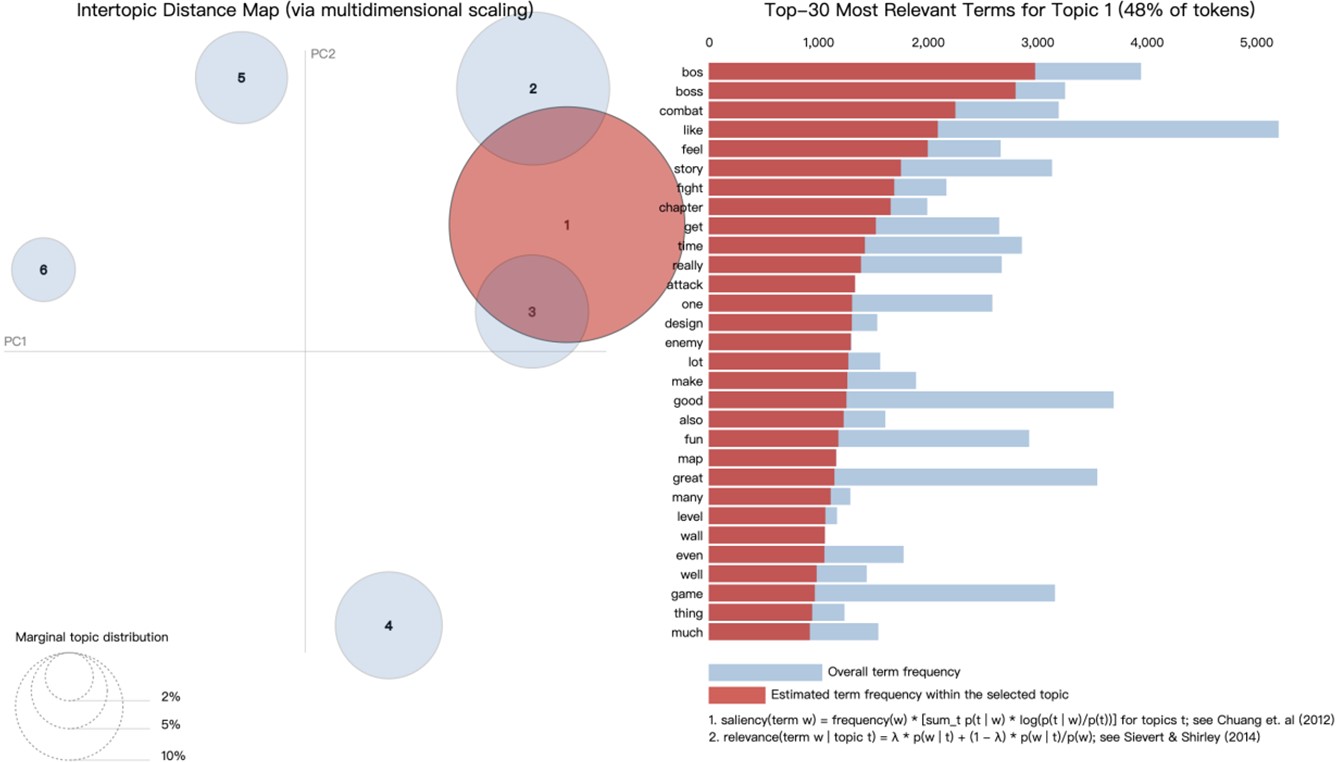From Cultural Perception to Meaning Co-Creation: Analyzing Overseas Players' Cultural Perception Pathways in Black Myth: Wukong
Abstract
As a burgeoning medium for global cultural dissemination, video games possess both narrative and immersive affordances. Yet, their actual impact on cross-cultural communication remains underexplored. This study focuses on Black Myth: Wukong, China's first AAA video game, and analyzes 18,916 English-language reviews from the Steam platform using Latent Dirichlet Allocation (LDA) topic modeling and GoEmotions sentiment analysis. From the perspective of players, the research uncovers three major findings: (1) Players’ perception centers on combat design and gameplay difficulty, where high-challenge mechanics enhance immersion and enable cultural engagement; (2) Chinese cultural elements elicit both aesthetic admiration and interpretive confusion, revealing a psychological tension between curiosity and alienation; (3) Through social interaction and user-generated content, players actively participate in cultural negotiation and meaning co-creation, thereby fostering intercultural identification. This study offers a player-centered perspective on the complexities of cultural transmission via Chinese “Souls-like” games, providing both theoretical insight and empirical support for the internationalization of Chinese digital games.
References
[2] Xinhua Net. (2023). 2023 China game industry report. Available from: https://www.xinhuanet.com/ent/20231215/f670a4330eac41d6859e9f11d9226d5b/c.html [Accessed 28th September 2023].
[3] He, W., & Li, Y. (2024). Symbols, knowledge, and ideology: Innovative transformation of excellent traditional Chinese culture in digital games. Jiangsu Shehui Kexue, (01), 232–240.
[4] Zeng, P., & Deng, Y. (2022). From communication vehicle to innovation agent: Paradigm innovation of Chinese games "going global". Xinwen Daxue, (05), 94–104, 122.
[5] Niu, Y., Tang, G., & Li, H. (2024). Exploring innovative paths for the international dissemination of Chinese traditional culture: A case study of the digital game Genshin Impact. Keji Chuanbo, 16(17), 140–147.
[6] Shen, T. (2025). Cultural inheritance and global conflicts in Black Myth: Wukong: An analysis of paradoxes and coping strategies. Xueshu Tansuo, (02), 134–141.
[7] Kim, Y. Y. (2001). Becoming intercultural: An integrative theory of communication and cross-cultural adaptation (pp. 45–70). Thousand Oaks, CA: SAGE Publications. https://doi.org/10.4135/9781452233253.n4
[8] Liu, S. (2024). Rethinking flow theory in game studies: A case perspective on Souls-like games. Wenyi Lilun yu Pipin, (06), 151–155.
[9] Zhao, J., & Peng, J. (2025). Becoming the "Great Sage": Affective experiences and community cohesion through Chinese cultural symbols in games. Bianji Zhiyou, (03), 35–43.
[10] Huang, H. C., Huang, L. S., Chou, Y. J., & Teng, C. I. (2017). Influence of temperament and character on online gamer loyalty: Perspectives from personality and flow theories. Computers in Human Behavior, 72, 50–60. https://doi.org/10.1016/j.chb.2017.01.009
[11] Shen, Z., & Zheng, J. (2024). Digital aesthetic cosmopolitanism: Cross-cultural communication of short videos and the emerging pattern of digital social interaction. Makesizhuyi Meixue Yanjiu, 27(01), 287–298, 481.
[12] Che, Z. (2023). Traversal and death: A media archaeology of game saving mechanisms. Dushu, (4), 90–97.
[13] You, H., & Wang, X. (2024). The multiple proximities of traditional cultural imagery: Modern representations and consensus building in Black Myth: Wukong. Chuanmei Guancha, (12), 83–91.


This work is licensed under a Creative Commons Attribution 4.0 International License.
Copyright for this article is retained by the author(s), with first publication rights granted to the journal.
This is an open-access article distributed under the terms and conditions of the Creative Commons Attribution license (http://creativecommons.org/licenses/by/4.0/).









1.png)














